 Muslims and misinformation
Muslims and misinformation
by Barney Zwartz (muslims-and-misinformation-20110403-1ctdw.html">SMH)
When it comes to the media you have, as Mark Twain observed, a difficult choice. If you don’t read the newspaper you are uninformed. If you do read the newspaper you are misinformed.
(NB: This is the text of a speech I gave on Saturday, April 2, 2011 on Islam, values and the media at a seminar at Melbourne University’s National Centre for Excellence in Islamic Studies, arranged by the Australian Intercultural Society. I have to warn readers that it is much longer than the average Fairfax blog, even my average blog, at about 3400 words. But I think enough people will be interested in discussing the media depiction of Muslims and the reasons for it to make it worth posting the speech.)
I’m slightly uncomfortable attacking colleagues, especially when I felt mainstream media coverage of Islam in Australia was becoming rather more responsible. But less than two weeks ago a leading Australian television program presented a piece of journalism that I can only regard as cynical and contemptible.
Also Read: Taaruf of the Construction World: Lessons from the Collapse of Al Khoziny’s Prayer Hall
“When Muslims complain that the media stereotypes them and provides false perceptions, I say that sadly this is true. We stereotype everyone.”
I am talking about the 60 Minutes segment which purported to be an analysis of the merits and failures of multiculturalism. For those who didn’t see it, the program began by highlighting problems between Muslims and mainstream society in England. This involved making a hero of the program’s main subject, a man in other circumstances it might portray as a far-right extremist and agitator. It included admittedly disturbing film from an Islamic school in which young children were getting hatred of the Western host culture literally beaten into them. It then segued to the situation in Australia, taking as its representative Muslim an Australian convert to Islam, founder of Sharia4Australia, who may be a member of Hizb ut Tahrir, perhaps the group least representative of Australian Muslims. This man claimed he hated democracy and that it was the goal of every Muslim to bring down the Government and introduce Sharia. This was interspersed with an interview with an English extremist and finally some remarks from an articulate young Muslim woman but this was too little too late – it seemed tokenistic.
This was a hatchet job, a thinly veiled opportunity to vilify Muslims and stir up suspicion and resentment. Sadly, it is still not nearly rare enough. And, of course, focusing attention on imaginary issues distracts from real ones.
For Muslims it must have been yet another inglorious moment in Australian journalism, though not on a par with the likes of Alan Jones on Sydney radio inciting hatred and violence before the Cronulla riots in December 2005. Jones said, in his typically measured and thoughtful way: “My suggestion is to invite one of the biker gangs to be present in numbers at Cronulla when these Lebanese thugs arrive. It would be worth the price of admission to watch these cowards scurry back on to the train for the return trip to their lairs. Australians old and new shouldn’t have to put up with this scum.”
Also Read: Fear of Being Left Behind: When FOMO Becomes a Lifestyle for Gen Z
This is extreme – and Jones was found to have vilified Lebanese and incited violence by the Australian Communications and Media Authority, who flogged him with a limp lettuce leaf by way of punishment. But the media, especially at the lower end, has played a powerful part in creating an atmosphere of suspicion about Australian Muslims. I want to acknowledge that, while also saying it is not entirely our fault, and that any solution cannot ignore the media.
I noticed in a paper Islamic Council of Victoria president Hyder Gulam sent me a couple of weeks ago that the media is the most distrusted institution among Muslims in Australia, with some 65 per cent saying they had no or very little trust in it. Given tabloid television, radio and newspapers – though not, of course, The Age – this is hardly surprising.
But I suppose if you wanted intelligent analysis you would have invited an academic. Instead you invited me, so I plan to talk a little about my experience reporting of Muslims in Australia over the nine years that I have been covering religion. And, if it’s not presumptuous, I plan to give you a bit of advice about understanding and dealing with the media.
Muslims complain that much media coverage is stereotypical and negative. I concede this, but you are not as lonely as you think. Just ask Catholics how they feel about how the media tends to portray the church – filled with paedophile priests, callously acting only in its own interests, trying to force their views on everyone else by influencing politicians, as a dinosaur religion that is dying out. And many of those articles are justified, but by themselves they present a very unbalanced picture. They ignore the good news stories, the schools and hospitals and welfare agencies, the generosity and self-sacrifice of many members of a diverse community.
Also Read: Peace in Gaza, Between Hope and Reality
I suggest it is much the same for Islam. When Muslims are arrested on terror charges, it must send a sigh of despondency through the entire community. “Here we go again, we have to justify ourselves, distance ourselves, denounce violence.” But the community must also recognise that this is news, of interest and importance to them and the wider community, and should be reported. Many of the articles perceived as negative are like this. The problem is not that they are false in and of themselves, though they may be slanted. The problem is that they present a very unbalanced picture and ignore the good news stories, the community work, the generosity and self-sacrifice of many members of a diverse community.
So when Muslims complain that the media stereotypes them and provides false perceptions, I say that sadly this is true. We stereotype everyone, and often oversimplify complex questions. We don’t have space or time to prepare carefully nuanced PhD theses on fast-moving news stories, and if we did our readers wouldn’t have time or energy to absorb them. We have to sort and choose the facts and sources, and present summaries that can’t always have the careful qualifications we would like. And sometimes we get things wrong, whether its facts, or emphasis or a general perception over time.
And of course that is the nature of news itself. It focuses on the negative, on conflict, because that’s what interests people. It has been said that news is what someone doesn’t want you to print; everything else is advertising. And there’s something in that.
Now I am not a propagandist for any religion. To do that would be to betray my role as reporter, observer and commentator. But because I believe Muslims have been so unfairly presented, even demonised, I have set out over the years to balance the picture somewhat. I do this not by censoring stories Muslims might find negative, but by working also to find stories that show Muslims as ordinary people, ordinary Australians doing good things. I also do it by putting a human face on what the wider community simply sees as a problem, for example a major feature on the Somali community in Melbourne that began on page 1. I write about interfaith, emphasising the similarities rather than the differences, showing what the religions share, the common values and goals. I try to tell people what they don’t know, such as an article that many in this room enjoyed a year or two ago about the important and positive influence of Fethullah Gulen.
Also Read: Four Prominent Palestinian Detainees Set for Release: Who Are They?
I wrote an opinion article few years ago headlined ‘Why Muslims make good citizens’. It began: “Let’s say immediately what it seems Prime Minister John Howard cannot say: that to the extent that they follow their religion, Australian Muslims are good citizens. They don’t gamble or drink or steal, they are family-minded, community-minded – particularly within their own ethnic/religious community – and they are civic-minded too. Most of the Muslims I speak to say they love Australia, are grateful this country took them in and gave them freedoms – including religious freedom denied them in some Muslim-majority countries – and are happy to call it home. Many of these are devout, some are fundamentalists.” I ended by suggesting that “to combat alienation and terrorism and to help new communities adjust, we don’t want less Islam but more”.
So here is a mainstream newspaper running something positive about Islam and about religious Muslims, and separating fundamentalism from extremism, two separate characteristics that are often automatically linked. That doesn’t fit the media stereotype.
Now naturally I have presented material I hope makes me appear to advantage. But I didn’t start in this enlightened state. This job has taken me on a considerable journey. When I began I knew hardly any Muslims, now I know hundreds. I did not know that the Muslims living in Melbourne came from some 70 different ethnic groups, sometimes with little in common but their faith.
A profound lesson for me came when I wrote what I regarded as an important story about the persecution of Sabean Mandaeans by Muslims in an Australian detention centre that led to improved conditions for the victims. I was horrified to find that article in a university booklet as an example of how NOT to report on Islam because I had treated the persecutors as typical Muslims. Of course I didn’t say that, but nor did I properly differentiate. I thought hard about that, and learnt a lesson. And now the care I take not to present all Muslims as one homogenous group is automatic.
Also Read: Children in Gaza and Future Generations Threatened by Genetic Damage
But my hurdle was not bias or disdain for Muslims, it was sheer ignorance. And for most of the media, that remains the case. When I entered journalism there was considerable hostility to religion among journalists; now there is mostly ignorance. Is that preferable? You choose. The point is, you shouldn’t always see a conspiracy in reporting that you don’t like. It is more likely to be ignorance than malice, more likely to be a cock-up than a conspiracy.
Sometimes, too, the media does not create, it simply reflects. And, of course, in reflecting, creates. But we do not invent this discourse. In Islam and the Australian News Media, Sarah Smiles Persinger asks “are individual journalists entirely to blame? How much of the coverage of Islam in Australia is shaped by other factors, such as fierce competition between media outlets, the space constraints in telling a story, back-biting within the Muslim community, and more generally, post-September 11 public discourse about radical Islam and terrorism propagated by the political elite?”
In other words, often journalists are simply quoting politicians, which is our job. Politicians have not been above playing on, even building, fear and suspicion of Muslims. Perhaps the most cynical example is the 2007 Lindsay election pamphlet in which unauthorised Liberals led by the husband of MP Jackie Kelly distributed a fraudulent flyer. It purported to be from a Muslim group thanking Labor for promising clemency to terrorists and to build a mosque in the electorate. But I’m sure Muslims would recognise other examples of playing this race/religion card.
Let’s look briefly at four stories of varying importance from the past few years that all reflected negatively on at least some Muslims.
Also Read: Palestinians in Gaza Remain Wary Amid Ceasefire Jubilation
The Sydney Lebanese community was outraged at coverage of the gang rapes there in 2002, claiming it was racially motivated. They had something of a point: it did become an occasion for racism, especially at the lowest common denominator of talkback radio. But they were wrong, in my view, to demand that the media not report the racial aspects, because the rapists made it a racial issue in their choice of victims and in what they said to them while raping them. In closing ranks around the rapists and attacking the reaction, the Lebanese community unwisely drove a wedge between it and the wider community, a wedge that some sections of the media and xenophobes were only too happy to help hammer. So, defensiveness and inexperience helped make a difficult situation worse.
On this, let me say in passing that The Age has a deliberate policy with police or court stories that we do not mention a person’s religion or ethnicity unless it is directly relevant.
Second, the 2007 case of the English teacher in the Sudan whose children named the class teddy bear Muhammad. She was jailed, there were calls for her execution and, after intervention by British Muslim leaders, she was deported. It was extremely negative publicity for Islam, reinforcing stereotypes that the religion is fanatical, puritanical and harsh, and I’m sure many of you were embarrassed about it. I was at an interfaith conference in Perth at the time, and a Muslim commentator complained that coverage of this issue gave a false perception. He said he didn’t disagree with any of the facts reported, but they made it sound as though all Sudanese were primitive fanatics, whereas it barely created a ripple in that country. He had a point, but he couldn’t seriously expect the media to ignore the story.
A third example was Sheikh Taj al-Din al-Hilali’s comments on Egyptian television, in which he claimed there was no freedom or democracy for Muslims in Australia, that English people are the most unjust and dishonest, that Muslims were more Australian than Anglo-Saxons because they came here voluntarily rather than in chains and that Australians played the “fear card” to keep Muslims down.
Also Read: When the Sumud Flotilla Didn’t Reach Gaza
Afterwards came the usual justifications: he was taken out of context, he was misunderstood, he was speaking in Arabic, which is much more flowery than English. Following his remarks comparing scantily clad women with uncovered meat, it was the last straw and the Council of Imams replaced him as mufti soon after. I’m no defender of Sheikh Hilali, he was an astute politician playing to his domestic audience, the Muslims at Lakemba. The interesting point here is the role of the media in giving him a profile and importance he never deserved. We loved the headlines he gave us, and often ignored the fact that he spoke for a tiny minority of Australian Muslims. Many Melbourne Muslims put this to me strongly, and I explained it in articles at the time.
My fourth example comes from a story in another paper about Muslim parents in Shepparton removing their children from musical subjects at two primary schools because they were concerned about the lyrics in the pop songs. Some didn’t want girls and boys dancing together.
I maintain, and obviously you can disagree, that the first three issues were all important and the media generally tried to take them seriously. I’m not going to defend the treatment by tabloid television or radio shock jocks. I say these were valid stories, but I also agree that the media didn’t present the whole truth. The media can’t present the whole truth, first because there often isn’t such a thing and second because, as I said, we deal in short summaries.
But the Shepparton story was wrong and nasty. I don’t mean the reporter set out to be nasty, but I thought it was a nasty story in the impression it gave of Muslims as outsiders unable or unwilling to integrate. Parents take their children out of classes all the time for all sorts of reasons, few of which become news articles. Lots of secular parents don’t let their children go to religious education classes, and some resent the classes so much they have complained to the Victorian Equal Opportunity and Human Rights Commission.
Also Read: Noble Effort in Caring Senior Citizen; Best Practices from Indonesia to the World
I spoke of the Sydney Lebanese community unwittingly encouraging racism. Interestingly, and this is a purely personal view, the wider Muslim community took a big step towards acceptance after the 2005 London bombings. Before that it had been hard to get moderate leaders to criticise more militant Muslims publicly, however concerned they might be privately. It was a courtesy the militants did not reciprocate. Amid the shock of these English home-grown terrorists, Australian imams and Muslim leaders began to admit publicly that there was a potential problem. The effect of this was to begin shifting public perception. It went from Muslims against Australians to Muslims and other Australians sharing a joint concern.
This illustrates a serious problem for Australian media. How can we know who speaks for Muslims when so many claim to do so? Nahid Kabir wrote a paper in 2006 about the representation of Muslims in the Australian media, in which she complained that pictures of Palestinian Muslims celebrating 9/11 were not placed in their “correct context”, encouraging readers to draw “their own mistaken conclusions”. It may be obvious to Nahid what the correct context is, but it is not to me, let alone utterly secular news editors making decisions about what to put in the paper. Similarly she blames Western media for insisting on promoting the myth that female circumcision is an Islamic ritual. But while many imams deny that it is a religious duty, others say it is. Yes, it predates Islam, but has been adopted by parts of Islam. How is a reporter to know, when Muslims themselves are undecided, and both sides say ‘listen to me, not them’?
The overwhelming majority of Australian Muslims see no conflict between their faith and their society, but Muslims are very much a minority here. Is their openness the real Islam? Is there such a thing as the real Islam? If so, is it the violent persecution of Copts in Egypt, the blasphemy laws in Pakistan, or the rigid orthodoxy and intolerance in Shia Iran or Sunni Saudi Arabia? Or is the more gentle and friendly religion of most Indonesians or Turks the real Islam? What will be the influence on the Ummah of the large proportion of Muslims who live as minorities? These are ongoing debates within Islam. If Muslims don’t know, how can the secular media? I do not ask these pointed questions to cause offence, but to show that – given the contrary claims – mainstream Muslims must speak up.
Mind you, this confusion should not cause consternation. Again, Muslims are not alone. The Pope does not even speak for all the world’s Catholics, let alone the billion Orthodox and Protestant Christians. But I will say this: at the very least, it should teach the media to be careful, which would make a lot of Muslims much happier.
Also Read: Open Letter to President Prabowo Subianto: Never Recognize the Sovereignty of Zionist Israel
There is another aspect to the question of who speaks for Islam. Moderates are still comparatively reticent or disorganised and leave the field too much to militants, though that is rapidly changing. Do you know which Muslim group sends me by far the most email? Hizb ut Tahrir. If I didn’t know better, I might give them a good deal of credence. And, by the way, I gather that their influence is growing among Muslims at New South Wales universities. The Australian Federation of Islamic Councils is quite organised these days, as is the Islamic Council of Victoria, but the Australian National Imams’ Council is a great disappointment from a media perspective. I have often tried to consult them on Islamic issues, but they have not grasped the speed of the Australian media cycle. If I get a reply at all, it is not for days – far too late to be of any use. I know that Muslim leaders who speak to the media can face a backlash inside their communities but it seems to me that representing their communities to wider society is part of leadership.
Fortunately for both the media and Muslims, a new generation of leaders is emerging, Australian-raised, for whom English is their native language, who are culturally at home, completely comfortable as democratic Australians and as devout Muslims, and who understand the media and wider society much better than first-generation migrants. Muslim leaders have tended to be based around ethnic communities, so this broader perspective is beneficial. Not only are they more comfortable with the media, the media is more comfortable with them.
There are also a growing number of academics, with an increasingly diverse range of specialisations, whom the media can consult. This is very helpful, particularly for social or political or broad context questions. But for specifically religious issues, spokesmen can be hard to find.
So, a piece of advice. I acknowledged that the media wrongly tends to think of Muslims as a single monolithic group, as I unreflectively did myself at first. Just as we have to move beyond that, so Muslims must recognise that neither is the media a homogenous, monolithic group. I quote Nahid Kabir again. She concludes: “Rather than addressing and refuting misconceptions about the Islamic faith, and analysing the root causes of terrorism, the media is more interested in maintaining the community anxiety that seeks convenient scapegoats for social ills”. I detect here precisely the stereotyping to which she objects, painting a single “media” with the same brush. I am not Alan Jones, and The Age is not The Australian. No editor has ever suggested to me that I should make an article more sensational at the expense of accuracy.
Also Read: Measuring the Reality of the Israel-Palestine Two-State Solution
So Muslims should seek to engage the media and wider society, as many do. However unfair it may feel, the onus is on the Muslim community in Australia to build bridges if it is to change perceptions. Here I pause to salute the Australian Intercultural Society, which has been a pioneer of that engagement and remains in the forefront. (T/P3/R01)
Mi’raj Islamic News Agency (MINA)
*Barney Zwartz is a senior fellow with the Centre for Public Christianity and former religion editor for the Age. He has held numerous positions in journalism and has written broadly on classical music and opera. He has been given peace awards by interfaith groups.
Source: http://muslimvillage.com/2011/04/05/9621/muslims-the-media-and-misinformation/





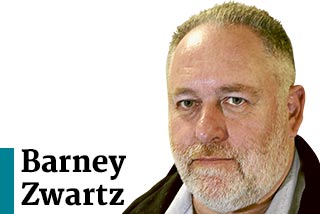


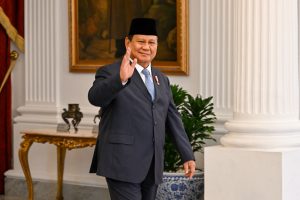
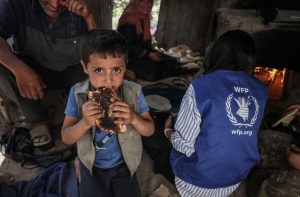


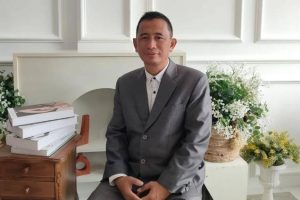

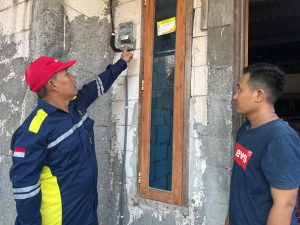
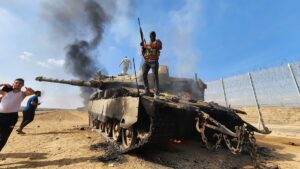

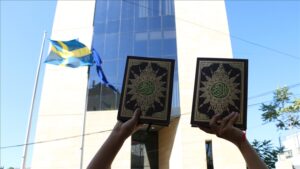

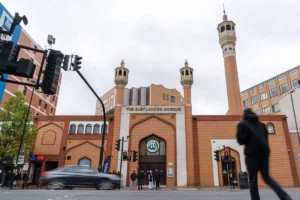




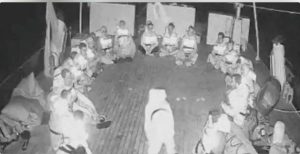
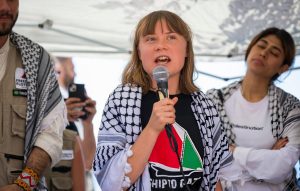

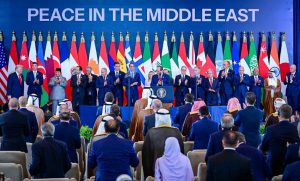
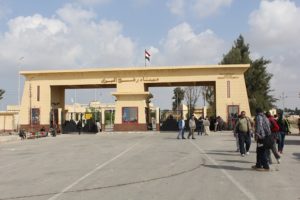
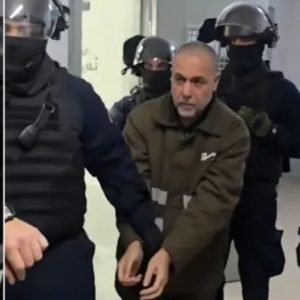


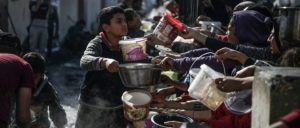
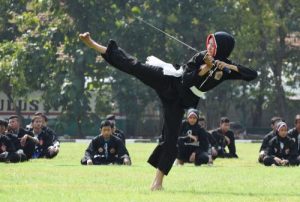



 Mina Indonesia
Mina Indonesia Mina Arabic
Mina Arabic